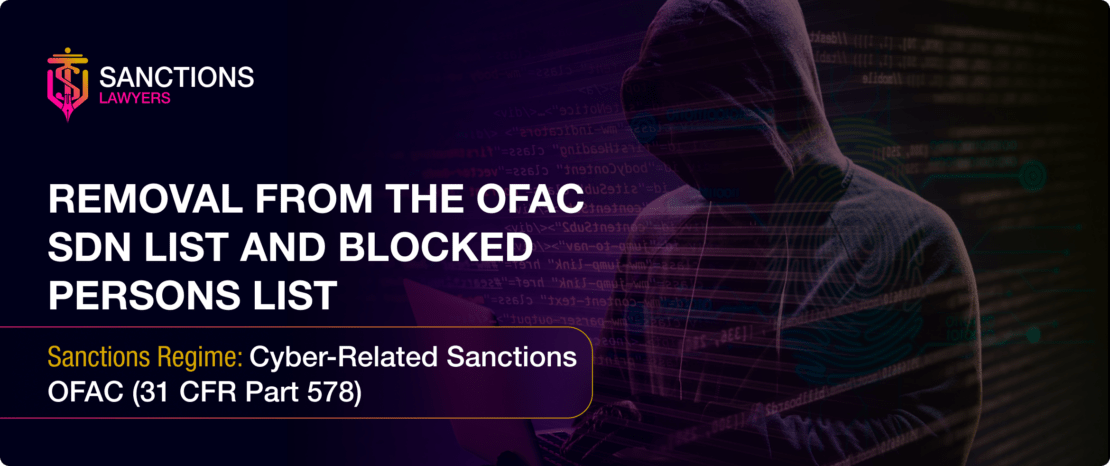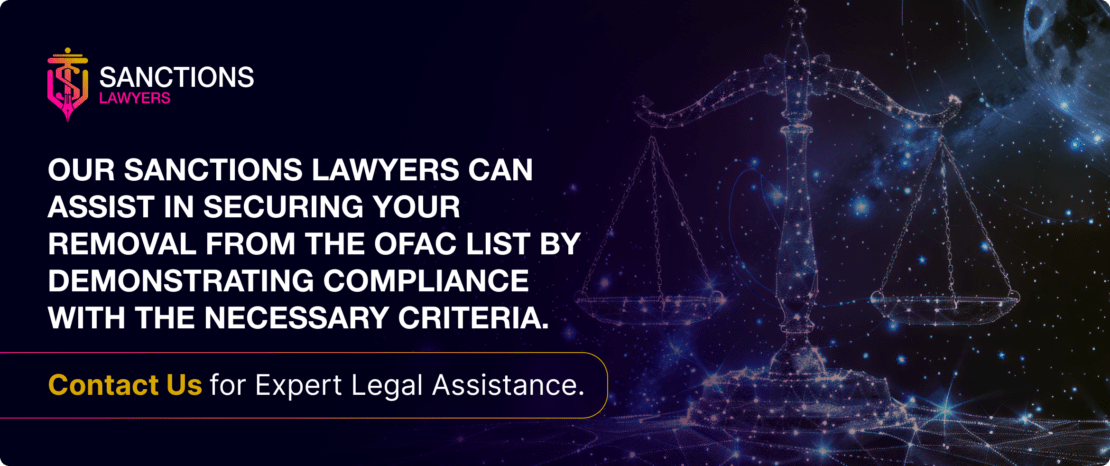
Refer to Related Case Documents: E.O. 13694 (as amended by E.O. 13757), the International Emergency Economic Powers Act (50 U.S.C. §§ 1701 et seq.) (IEEPA), and the National Emergencies Act (50 U.S.C. §§ 1601 et seq.)
Case Background
Our legal team received a request from Client [Confidential] (an individual with permanent residency and citizenship in the Russian Federation (high-risk jurisdictions)), holding the position of Import Specialist at Company 1 [Confidential], operating in the Russian Federation. Client [Confidential] was added to the OFAC SDN list in October 2019 pursuant to E.O. 13694 for attempting to circumvent U.S. sanctions in collaboration with Company 2 [Confidential], also operating in the Russian Federation, acting on behalf of Company 1 [Confidential], which was itself sanctioned by OFAC in July 2019 under E.O. 13694 (as amended), for procuring various computer hardware and software for Russian state institutions, including the FSB, which was sanctioned on December 28, 2016, under E.O. 13694 (as amended) and on March 15, 2018, under Section 224 of CAATSA.
Client [Confidential] sought representation from Sanctions Lawyers to file a petition for removal from the SDN list through the administrative review process established in 31 CFR § 501.807. Our lawyers demonstrated that “The basis for designation no longer exists” for Client [Confidential], resulting in their removal from the OFAC SDN list. Sanctions Lawyers can advocate for your removal from the OFAC list by proving that you meet one of the following criteria: “Positive change in behavior”, “The basis for designation no longer exists”, or “Mistaken identity”.

Additionally, if you are currently ineligible for removal from the OFAC SDN list, we offer advisory services to develop and implement an action plan to qualify for delisting. Such a plan may include corporate restructuring, reassessment of business relationships with certain entities, and other personalized actions, which are not disclosed to prevent competitive advantage.
Legal Assistance Rendered
- Sanctions lawyers conducted meetings with Client [Confidential] to understand their current situation and the circumstances that led to their inclusion on the sanctions list.
- A thorough analysis of Client [Confidential]’s activities was performed, identifying changes in the initial circumstances. This analysis included gathering relevant supporting documentation (such as personal statements from Client [Confidential] and other documents, which are not disclosed to prevent competitive advantage) to argue and prove that the basis for designation no longer exists.
- Over several weeks, sanctions lawyers prepared and submitted a comprehensive, clear, detailed, and structured petition to OFAC under 31 CFR § 501.807, explaining why Client [Confidential] should be removed from the OFAC SDN list.
- Continuous interaction with OFAC was maintained by the sanctions lawyers to monitor the progress of the petition review. During the review process (average review time for OFAC SDN removal requests is about one year), an additional request for information was received from OFAC, which was promptly addressed by the lawyers through a questionnaire response (Attention: Sanctions lawyers warn that ignoring or improperly responding to OFAC’s additional information requests may result in the denial of your review request).
- Following the review of the petition, OFAC issued an update removing Client [Confidential] from the OFAC SDN list.

From 2022 to mid-2024, there has been an increasing trend in the application of secondary OFAC sanctions as a direct extraterritorial measure affecting a wide range of entities outside the U.S. The main targets of secondary OFAC sanctions have included companies from China, the UAE, Turkey, Switzerland, and Cyprus. Countries that have faced secondary sanctions include the UK, Estonia, Liechtenstein, France, Germany, Kyrgyzstan, Moldova, Belarus, Kazakhstan, Armenia, Azerbaijan, Georgia, Tajikistan, and India. This list includes over 500 companies from 57 countries. The Sanctions Lawyers confidently and successfully handle cases related to secondary OFAC sanctions.

